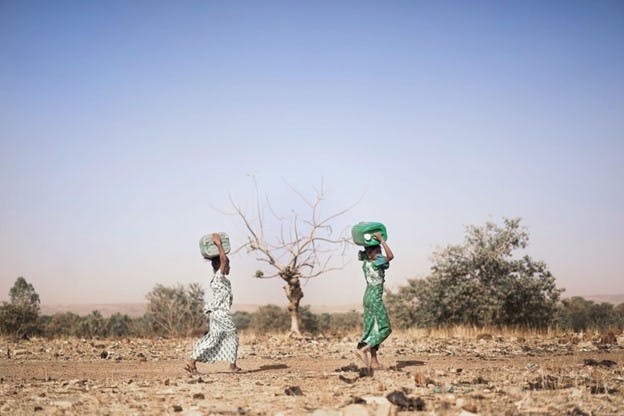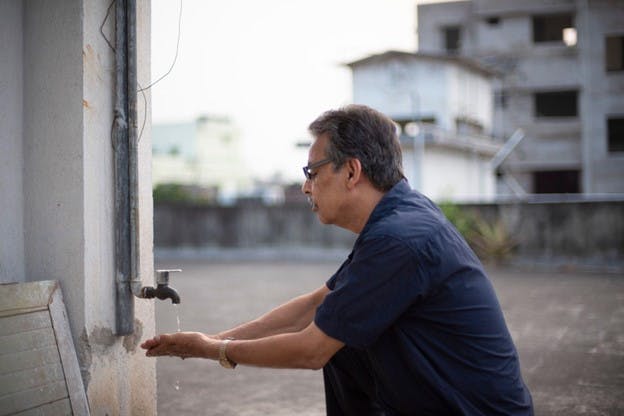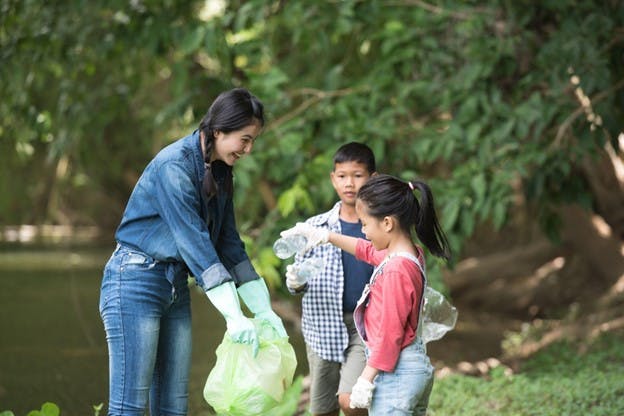🌟 New Arrival! Upgrade Your Water with Our Advanced Pitcher Filter. Shop Now
March 2023
World Water Day 2023: The Impact It’s Made and Goals for the Future
Freshwater is a precious resource that sustains all life on planet Earth — but it is very limited. It’s easy to forget just how limited it is when you live in a place where drinkable water flows freely from your tap for a few pennies per gallon. Unfortunately, for many people, this isn’t a shared reality.
Fresh water makes up just 2.5% of the total water found in the world, but it isn’t always managed in the most sustainable ways. With billions of people struggling to get enough, without intervention, these scarce water sources will only become more strained going forward.
Whether you live in a place where fresh water flows freely or one that’s struggling to get enough, water management must continue to be a global effort. The United Nations created World Water Day to remind us of that.
Let’s take a look at how World Water Day was established and how it has impacted the global water crisis.
What Is World Water Day?
World Water Day is an annual United Nations (UN) day of observance that looks at the importance of fresh drinking water, sanitation, and hygiene. It calls for sustainably managing the use of freshwater sources around the world, and encourages people to learn about problems with safe water access and take action to make a difference.
This time also marks the release of the UN World Water Development Report. The report takes a close look at how global water resources are being managed and what problems different regions of the world are having with freshwater sources. It also makes recommendations for more sustainable practices.
World Water Day is organized and convened by UN-Water, an interagency group that coordinates with other UN groups that are involved in the day’s goals. Sanitation is a major issue for freshwater sources and safe water access around the world, and there are over 30 UN organizations that deal with water and sanitation. UN-Water makes sure that all of those organizations are on the same page.
Understanding the Global Water Crisis
It can be hard to imagine water-related issues like not having access to clean water in 2023, but for billions of people around the world, it’s a grim reality. A 2021 WHO/UNICEF report found that 2.2 billion people do not have access to safe water and almost half of the world’s population lacks access to basic sanitation.
These insufficient resources have huge impacts on people’s health, prosperity, and safety. Some surprising ways that lack of clean water and sanitation affect people include:
- Economic disadvantages: UNESCO reports that an estimated $260 billion is lost each year in countries without sufficient access to clean water, sanitation, and hygiene. These economic losses are linked to the amount of time that people spend looking for safe water sources, as well as days of missed work due to waterborne illnesses.
- Gender inequality: In areas with limited access to safe water, women and girls are usually responsible for collecting water. UNICEF calculated that the water-collecting labor of women and girls amounts to 200 million hours each day. These are hours that they cannot be in school, at work, or with their families and friends. Women and girls are also vulnerable to sexual assault while collecting water or looking for safe bathroom facilities — one study found that sexual assault in South Africa could be reduced by providing more public toilets.
- Health and mortality: The WHO reports that in 2020, 490 million people regularly got their drinking water from untreated sources like rivers, lakes, and unprotected wells. Without access to clean water, people are vulnerable to parasites and waterborne illnesses. These illnesses cause more than 7 million people in the United States to become sick each year, and over 3 million deaths annually worldwide.
With all of these water-related issues affecting the global population, it’s no wonder that the UN sought to raise awareness with World Water Day.
When Is World Water Day?
This international day of observance came about in 1992, during the United Nations Conference on Environment and Development. The 11-day conference, also known as the Earth Summit, was established so that member states of the UN could collaborate to address environmental issues that affect multiple countries. Global concerns like climate change, pollution, and poverty cross borders, so the Earth Summit was an opportunity for member states to work together. At the 1992 conference, the World Water Day proposition was formally introduced, and it was resolved by the UN General Assembly later that year.
The first World Water Day was observed in 1993, starting an annual practice of sharing information and action items to improve the use of water, sustainability, and access to safe drinking water.
Along with official sponsors like the Centers for Disease Control and Prevention (CDC), non-governmental organizations (NGOs) like UNESCO and UNICEF have become involved with World Water Day efforts. These organizations use the day to spread awareness of issues with water quality and water supply around the world. With seminars, publications, and movie premieres, these organizations try to increase media attention and public knowledge of water-related issues.
What Is the Impact of World Water Day?
While the early years of World Water Day observances pre-date social media, online activity provides a lot of information about the impact of sharing information and encouraging action items during this annual event.
The UN’s Annual Water Report of 2017 found that the social media campaign grew by 50% from 2016 to 2017, representing a potential reach of 2.4 billion people around the world.
In 2021, UN-Water’s social media account followings grew significantly — by 60% on Facebook and 75% on LinkedIn. That year’s pre-campaign in the months leading up to World Water Day resulted in more than 6,000 conversations across 140 countries under #Water2Me on the topic of water-related issues.
The UN, World Health Organization (WHO), and UNICEF also collect data on water-related issues to monitor progress toward Sustainable Development Goal 6 (SDG6). In 2015, the UN established 17 Sustainable Development Goals as a call for action to all countries to address economic, social, and environmental issues. SDG6 concerns water-related issues like sanitation, hygiene, scarcity caused by climate change, and the management of groundwater sources, among other things. The goal is for people to have universal and equitable access to safe drinking water by 2030.
In a joint WHO/UNICEF report in 2021, the data showed that the percentage of people with access to safely managed drinking water increased from 70% in 2015 to 74% in 2020. And according to the UN’s Sustainable Development Goals Report in 2022, the percentage of people with access to safely managed wastewater and sanitation increased from 47% to 54%. While the data shows improvements have been made, the rate of progress needs to be four times faster to achieve the 2030 goal of SDG6.
What Is the Theme of World Water Day 2023?
Each year, UN-Water sets the World Water Day theme based on the UN World Water Development Report. The global water issues highlighted in the report provide the focus for the action items and educational activities that are shared on social media and through the World Water Day website.
The theme for 2023 is Be the Change, which aims to encourage people and governments in accelerating change that brings the world closer to achieving SDG6.
Previous themes have come from the UN World Water Development Reports of their respective years. Here are some of the past themes:
- 1994: Caring for Water Resources Is Everybody’s Business
- 1998: Groundwater: Making the Invisible Visible
- 2007: Water Scarcity
- 2012: Water and Food Security
- 2020: Water and Climate Change
- 2021: Valuing Water
Each of these themes have brought corresponding educational programs, social media campaigns, and political action items.
What Can We Do on World Water Day?
Tackling the global water crisis and defending the human right of access to safe and clean water may seem like a job for government officials, but the activities suggested on the World Water Day website each year are designed for everyone’s participation.
For 2023’s Be the Change theme, action items include writing to your elected officials, conserving water at home, participating in clean-ups of local rivers or wetlands, and organizing events at your work or school.
Let’s All Make an Effort for World Water Day
The global water crisis affects our entire world, and World Water Day is an opportunity to get informed and take action to help the global community. Organizations like UN-Water, UNICEF, and UNESCO are already sharing action items, events, and educational media to get people involved. Join in on social media, participate in a community event, or adjust your use of water at home to do your part for the world.
The value of fresh, clean water can’t be overstated in the world or in your home. By using sustainable, U.S.-made water filtration systems and environmentally safe salt-free water conditioners, you can improve the quality of water where it matters most to your family.
Check out the HomeWater 4-Stage Whole House Filtration System to get the cleanest, best-tasting water from every tap in your home. Add on a salt-free water conditioner to increase the lifespan of your pipes and water-using appliances.
Or if you’d rather something a little more scaled down, our Under Counter Reverse Osmosis 4-Stage Water Filters are easier to install but will make sure only the best quality water makes it into your glass.
We should all be working to make fresh water more sustainable in the world, but in your home, there’s HomeWater.


